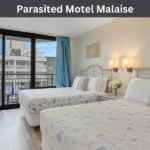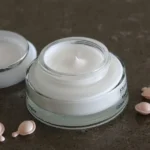Parasited Motel Malaise: An In-Depth Guide
Travel frequently conjures up visions of leisure and adventure, but when lodgings don’t meet even the most basic requirements of hygiene, the reality can be very different. The phenomenon known as Parasited Motel Malaise, a stressful situation where guests encounter not only poor circumstances but genuine parasite infestations, is a striking example of this.
In addition to providing practical guidance for tourists and motel operators to reduce these dangers, this article explores the causes, symptoms, and wide-ranging effects of this problem.
Also read:
Barbara Blake Schuldenfrei Queens NYC
What is Parasited Motel Malaise?

The Parasited Motel Malaise is the term used to characterize the discomfort and health issues that visitors staying in hotels infested with parasites face. These infestations, which are typically identified by bedbugs, fleas, lice, and mites, can be extremely upsetting both physically and mentally.
The word “malaise” sums up visitors’ uneasiness, which affects their entire trip and how they view the tourism sector.
Why Does This Occur?
Inadequate Cleaning Procedures: Due to financial limitations, many motels may not follow proper cleaning and maintenance schedules. Motels foster an environment that is favorable to pest infestations when they neglect to enforce strict cleaning procedures.
The American Hotel and Lodging Educational Institute states that avoiding pest issues requires good cleaning practices.
High Turnover Rates: High turnover rates are frequently caused by the ephemeral nature of motel visitors. The likelihood of pests spreading rises when there are a lot of visitors coming and going, especially if past visitors leave behind infected property.
Rapid guest turnover might make it easier for pests like bedbugs to spread from one room to another, according to the Centers for Disease Control and Prevention (CDC). A National Pest Management Association report states that proactive maintenance is essential in identifying and addressing potential pest habitats.
Neglected Maintenance: Over time, motels may develop cracks, crevices, and other hiding places for pests. If motels neglect routine inspections and maintenance, these areas turn into breeding grounds for infestations.
Understanding the Parasited Motel Malaise
The term “parasited motel malaise” describes the unpleasant and upsetting situations that guests frequently encounter in motels when there are bug infestations. It has an impact on mental health in addition to physical discomfort.
A number of pests, such as bedbugs, fleas, or rodents, can cause this illness. Travelers may wake up with strange bites or experience nighttime itching. The psychological effects are as important. A tranquil retreat may be overshadowed by worries about safety and cleanliness.
Visitors become overly conscious of their surroundings rather than enjoying their stay. Investigating how these circumstances affect not just personal experiences but also the general impression of hospitality venues is necessary to comprehend this phenomenon. The ramifications for both visitors and lodging owners are extensive.
The popularity of budget: Parasited Motel Malaise
Since many vacations are the favored choice for low-budget travelers, budget motels are becoming more and more popular. Because of their low cost, they are a popular starting point for solo travel, family vacations, and even work travels where the main goal is to sleep.
Many people attempt to save as much money as they can when traveling overseas because unemployment is rising worldwide. Budget hotels provide a great balance between cost and functionality; extras like free Wi-Fi and parking make them more appealing to travelers on a quick vacation.
There will be fewer and fewer of these types of accommodations remaining on the outskirts of cities and along highways as road trips become more common and vacations gain popularity. It is certainly difficult to resist the allure of discounted prices, particularly when unexpected expenses arise during a vacation.
There may be significant underlying problems with this frantic scramble for cheaper rates, though, which many motel guests would never question.
Hidden dangers of staying on budget: Parasited Motel Malaise
When traveling, people on a tight budget frequently choose inexpensive lodgings. But there is a serious risk associated with the temptation. Guests, especially those with allergies, asthma, etc., are in danger of respiratory problems due to mold and mildew in the restroom and badly maintained rooms.
These risky circumstances are also faced by astute business travelers trying to cut costs. In such abandoned locations, pests like cockroaches and bedbugs thrive, and what could have been a haven becomes a never-ending horror for the traveler.
These hotels and motels’ security is likewise far from ideal. Unaware visitors are left defenseless by dimly lit settings and a lack of extra security. Furthermore, the lack of proper and efficient fire safety precautions in advance tends to raise the danger level in an emergency. A test may only be dangerous in certain circumstances if there are no sirens or if there are blocked exits.
Only when personnel are trained to adhere to strict hygiene and sanitization practices can areas that need a deep clean receive one. In conclusion, travelers on a tight budget should exercise caution when selecting such low-cost hotels or motels.
Recognizing the Indications of Infestation: Parasited Motel Malaise

Both visitors and motel management need to know how to spot an infestation. The following are some typical signs of parasite problems:
1. Visual Signs
Visitors should check furniture, mattresses, and bedding for live insects, shed skins, or reddish-brown stains (bedbug excrement). Fleas or mites may be present on carpets and drapes if there are dark patches or droppings on them.
2. Bite Patterns
The biting patterns left by various pests are unique. Whereas flea bites are typically more sporadic, bedbug bites frequently occur in lines or clusters. The sort of pest implicated can be identified by identifying these patterns.
3. Odors
While an oily smell could point to cockroaches, a musty or sweet smell might indicate a bedbug infestation. During their visit, guests should be on the lookout for any strange odors.
Common Parasites Found in Parasited Motel Malaise
- Bedbugs: Known for their covert existence, these insects can disturb sleep and produce unpleasant welts.
- Fleas: Known for their painful bites and quick reproduction, fleas are frequently brought in by pets.
- Lice: Although less frequent, they can be transmitted by sharing towels and linens.
- Mites: These parasites burrow into the skin and produce excruciating itching, including scabies-causing variants.
Causes of Parasited Parasited Motel Malaise
Numerous circumstances can cause Parasited Motel Malaise to afflict unwary guests. Inadequate motel pest control procedures are one frequent culprit. Bed bug infestations and other insect problems can flourish when facilities disregard routine inspections.
This problem is also greatly exacerbated by inadequate sanitation procedures. Guests experience discomfort as a result of bacteria and parasites flourishing in dirty linens and unclean rooms. High employee turnover rates can also lead to irregular cleaning procedures.
The probability of parasite outbreaks in motel settings is raised by this discrepancy. The issue may worsen if owners are unaware of proper hygiene practices. Many operators fail to maintain basic sanitation standards, which exposes their guests to diseases and symptoms linked to pests.
Health risks associated with budget motel stays: Parasited Motel Malaise
Budget hotels have a reputation for putting price before quality. This leads to poor maintenance and cleaning, creating health risks. In a neglected environment, killer bugs and even common cockroaches can readily find a home. Such unexpected visitors may cause allergic responses or skin wounds in the form of rashes, which would be quite uncomfortable and itchy for any traveler.
Mold is another sneaky danger. It flourishes in damp environments, causing countless respiratory health issues for people who are impacted. Breathing problems or sinus congestion may also occur suddenly. Outdated HVAC systems may cause problems with indoor air quality because of maintenance.
In terms of health, every inhalation is a gamble because some contaminants may linger. An individual may get infections or foodborne illnesses if restrooms and kitchenettes are not adequately sanitized. A seemingly innocuous stay could leave you wishing you had visited the doctor while on vacation instead—something nobody wants.
1. Emotional Distress
Coming into contact with bugs can have a significant negative psychological impact. Visitors may suffer from stress, worry, and sleep issues, all of which can negatively impact their general health. According to studies, the fear of infestations can have long-lasting effects on mental health, including, in extreme situations, post-traumatic stress disorder.
2. Financial Burdens
Infestations may result in unforeseen expenses for visitors, such as replacing contaminated goods, looking for alternate lodging, or even suing the motel for negligence. The number of lawsuits involving pest infestations has increased as impacted visitors look for damages for their suffering and inconvenience.
Negative Impact on the Hospitality Industry: Parasited Motel Malaise
The hospitality sector may suffer a serious setback if parasitized motel malaise is present. Travelers quickly lose faith in motels when they have problems with cleanliness and pest infestations. On social media and travel websites, bad ratings proliferate like wildfire.
A motel’s reputation might be damaged for years by a single negative encounter. If they discover concerns about cleanliness or vermin, many prospective clients will reconsider making a reservation. Reduced occupancy rates hurt hoteliers’ bottom lines. Remedial expenses frequently exceed any temporary revenue from reservations.
Regular upgrades and inspections become essential, but they put a further burden on budgets. Employee morale suffers as well. Higher turnover rates can result from employees feeling uneasy working in a setting that is linked to neglect or subpar standards.
Essentially, parasitic motel malaise undermines the cornerstone of company viability in the hospitality industry as well as consumer delight.
The Importance of Proper Hygiene in Parasited Motel Malaise
For the safety and satisfaction of visitors, motels must maintain proper hygiene. Particularly when they are traveling far from home, travelers anticipate clean accommodations. A guest’s experience can be completely changed by a clean room.
Sanitizing surfaces and changing linens should be part of routine cleaning procedures. This procedure reduces the possible health hazards connected to filthy surroundings while also improving comfort. Here, staff training is very important.
Workers must be aware of how crucial it is to use efficient cleaning supplies and methods in order to get rid of pests and bacteria. Strict hygienic practices foster trust between motels and their visitors. Travelers are more inclined to return or refer others to the establishment when they are confident in its cleanliness.
Additionally, upholding strict hygienic standards might shield motel operators from lawsuits stemming from negligence allegations involving filthy circumstances. In a competitive market, investing in good sanitation procedures eventually improves brand reputation.
Preventive Measures for the Parasited Motel Malaise

To reduce the likelihood of infestations, motels had to use a thorough approach to pest control. Here are a few successful tactics:
1. Rigorous Cleaning Protocols
Strict cleaning procedures, such as routine vacuuming, hot water laundry, and steam cleaning carpets and upholstery, should be implemented by motels. Vacuums’ ability to capture microscopic pests can be improved by using HEPA filters.
2. Proactive Pest Management
Infestations can be identified and dealt with before they worsen with the aid of routine inspections conducted by licensed pest control professionals. Insect growth inhibitors are another preventive measure that hotels can use to keep pests away.
3. Staff Training and Education
It is crucial to train employees on how to recognize and handle insect problems. In addition to knowing how to report and handle infestations, staff members should be prepared to spot early warning indicators.
Tips for Guests: Protecting Yourself from Infestations
Although motels are responsible for managing pests, visitors can also take preventative measures to keep safe when visiting:
1. Research Before Booking
Before selecting a motel, look for evaluations that emphasize cleanliness and pest problems. Prior visitors’ experiences with infestations can be found on websites such as Yelp and TripAdvisor.
2. Inspect Upon Arrival
Examine your room carefully, paying particular attention to the furniture, bedding, and any dark areas. Finding concealed bugs might be aided by using a spotlight. Check common places like headboards, nightstands, and behind curtains for indications of bugs.
3. Keep Luggage Elevated
To lessen the chance that bugs will hitch a ride home, store your luggage on racks or other sturdy surfaces as opposed to the bed or floor. One technique to stop undesirable pests from getting into your possessions is to keep your luggage off the ground.
4. Use Protective Covers
To reduce interaction with possible pests, think about covering pillows and mattresses with bedbug-proof covers. These safeguards can serve as an extra line of defense against any pests that may already be present.
5. Maintain Cleanliness
To keep bugs away, keep your room clean and take out the trash frequently. Pest interactions can be decreased by keeping surfaces clean and sealing food items in containers.
Future Trends in the Parasited Motel Malaise
In an effort to create a setting that is both eerie and inviting, emerging trends point to a shift toward combining contemporary conveniences with thematic aspects of parasited hotel gloom.
Conclusion: Parasited Motel Malaise
Although parasited hotel malaise is frightening, its effects can be greatly lessened with understanding and preventative actions. By being aware of the risks and implementing strict preventative measures, travelers and motel owners may make travel safer and more pleasurable.
Maintaining cleanliness and safety in lodgings is essential for the hospitality industry’s operations and reputation, not simply for the satisfaction of its visitors.
FAQs: Parasited Motel Malaise
Here are some frequently asked questions about Parasited Motel Malaise We’ve provided comprehensive answers to ensure you have all the information you need. If you still have any questions or require further clarification, our team of experts is here to assist you.
Don’t hesitate to contact us at any time—we’re always just a message away and ready to help!
1. What is Parasited Motel Malaise?
The Parasited Motel The discomfort and health problems brought on by lodging in places where parasites like bedbugs, fleas, lice, and mites are present are referred to as malaise. In addition to psychological side effects including anxiety and insomnia, symptoms may include skin irritations like rashes and itching bites.
2. What are the most common parasites found in motels?
The parasites that are most commonly seen in motels are bedbugs, fleas, lice, and mites. Each may result in serious discomfort and health problems for visitors.
3. How can I identify a parasited motel before booking?
Examine the motel in-depth by reading reviews left by prior visitors before making a reservation. Keep an eye out for any reference to filthy surroundings or bug problems. Websites that monitor bug reports and hotel cleanliness might also be quite helpful.
4. What should I do if I find parasites in my motel room?
Inform the motel management right once if you find any obvious bugs, stains, or bite marks in your room that could indicate the presence of parasites. Ask for a different room or find another place to stay. Addressing the issue as soon as possible is essential to preventing health hazards.
5. How can motel owners prevent parasited motel malaise?
Owners of motels should enforce stringent maintenance and hygiene policies, regularly check their establishments for pests, and educate their employees on how to spot infestations and what to do to control them. Investing in expert pest control services is also advised.
6. Is it safe for families traveling with children or pets?
Families should use caution when selecting lodgings with a reputation for cleanliness. Always do your homework in advance and take into account clean, family-friendly solutions.











